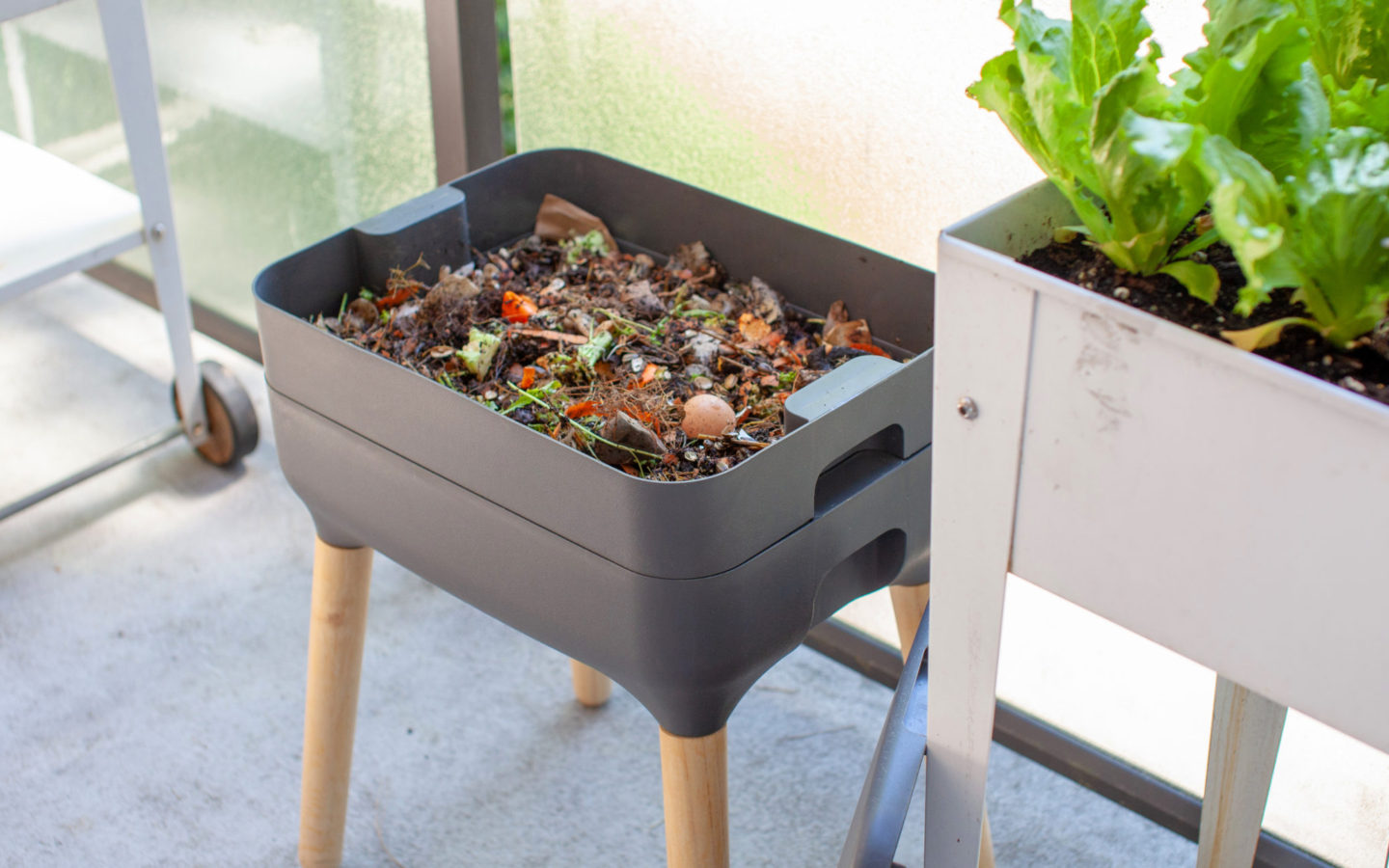
Composting is the natural process of breaking down organic and natural materials into fertilizer. Inside our modern world, unwanted items enter in the trash by default. Trash is stored in a landfill or incinerated. This process is an utter waste of resources. Composting has benefits for the household and the earth. Finished compost also creates free fertilizer for the garden. Let’s find out the benefits associated with composting and, more specifically, composting with worms.
Household Composting Benefits
You know how household trash has a negative odor after a couple of days? The odor is caused by anaerobic bacterial growth in the organic and natural matter. Kitchen scraps such as peelings and left-overs get started to decay. However, the trash bag doesn’t have much oxygen. Thus, bad bacteria proliferate and stink in the bag. Organic matter is the reason 35% of household waste. In the event that you compost this waste, you will:
Reduce the volume of your household trash by approximately 1 / 3. Lighter bags, fewer bags.
Save on trash costs. Some households think it is cheaper to cancel curbside pickup after they start composting and recycling. Throwing packaging out directly after checkout, bringing your own bags, and paying by-the-bag at the dump could spend less.
Eliminate trash odor, except when you discard meat, dairy, and other non-compostable waste. Tip: Keep them in the freezer until trash pickup day.
Discourage pests from getting into your trash. No food means any pests.
Worm Composter – Benefits of Applying Compost to the Soil
The end result of composting is organic fertilizer. Composting harnesses the natural procedure for decomposition. Wasted vegetation breaks into simpler components. This fertilizer has benefits:
Increases nutrient content in the soil. Finished compost is made mostly of nitrogen, phosphorus, and potassium. Also, it has trace minerals and micronutrients that are usually absent from commercial fertilizer. This consists of sulfur, carbon, magnesium, calcium, boron, copper, iron, iodine, zinc, and manganese.
Improves soil aeration. Adding compost to soil creates little air pockets.
Reduces erosion. The greater cultivated a land is, the less it’ll erode in the rain.
Helps the soil drain properly. In case the soil is loose or sandy, compost increases water retention. In clay or other heavy soil, compost helps with drainage.
Improves soil texture. Plants grow deeper roots in the right soil structure.
Helps regulate soil pH. Most plants need slightly acidic soil. Compost buffers soil pH by absorbing salt ions. Therefore, the salt is available to the plants because it is less likely to wash away. Also, all critters and plants that are in soil prefer a steady pH.(2)
May reduce plant disease. While studies have not been conclusive, compost is apparently associated with less disease in plants.
Benefits of Composting with Worms
Composting can be as simple as chucking organic and natural matter into a pile or bin outside. Microbes, fungi, insects, and soil-friendly bacteria will breakdown the vegetation eventually. A few worms will dsicover their way into the pile. They will eat the organic and natural matter and excrete nutrient-rich “humus.”
Vermicomposting directly harnesses the energy of worms to increase the composting process. Large numbers of worms are added to the compost bin all at once. The best composting worms are Red Worms. These champion composting worms are hearty and hungry. Vermicomposting is performed in “bedding” which involves coconut coir, shredded black & white newspaper, pure peat moss, composted leaves, and other material. Great things about composting with worms include:
Fast! Add 500 or more red worms to the composting bin and they’ll start chowing on bedding and vegetation. Under ideal conditions, they can eat half their weight in vegetation each day.
Less odor than regular composting. The worms breakdown the vegetation faster, reducing rot and odors. Organic matter should be buried therefore the worms will find the food easily. Covered worm food emits less odor in to the air.
Indoors or outdoors. Apartment dwellers often can’t place a compost bin out-of-doors. Some householders find indoor composting far more convenient. Regular composting is not fast enough for indoors. Composting worms quickly and proficiently eat the organic and natural waste. Therefore, vermicomposting can be carried out inside, or outarea.
Better quality finished compost. Worm castings contain the worms’ gut bacteria and mucus. These microbes and substances are extremely beneficial to plants. Vermicompost has more nitrogen-fixing bacteria than conventional compost. Vermicompost helps make minerals in the surrounding soil available to plants more quickly. Additionally, a Cornell study discovered that compost made by worms helped prevent Pythium aphanidermatum. This pathogen damages greenhouse plants.






